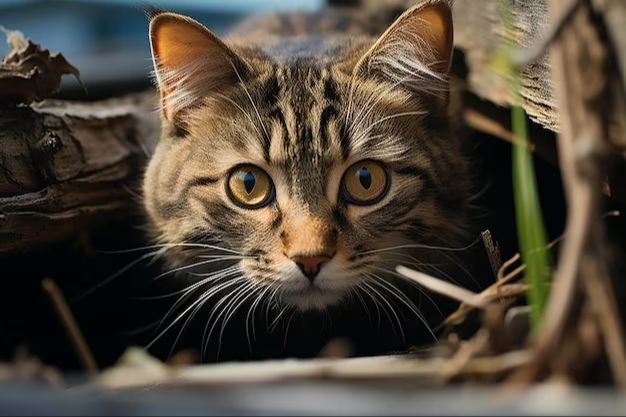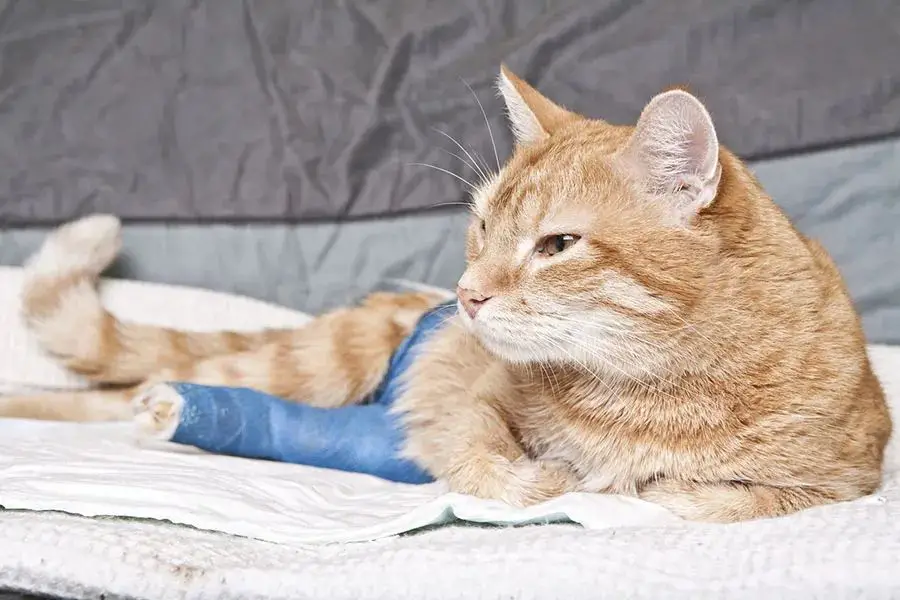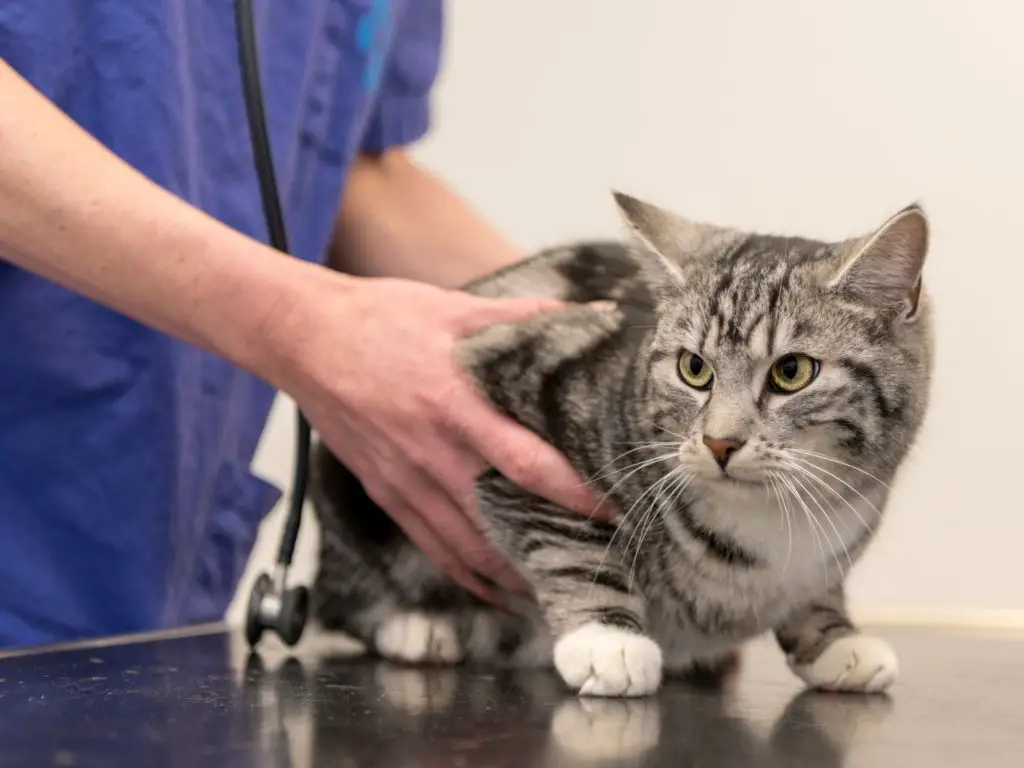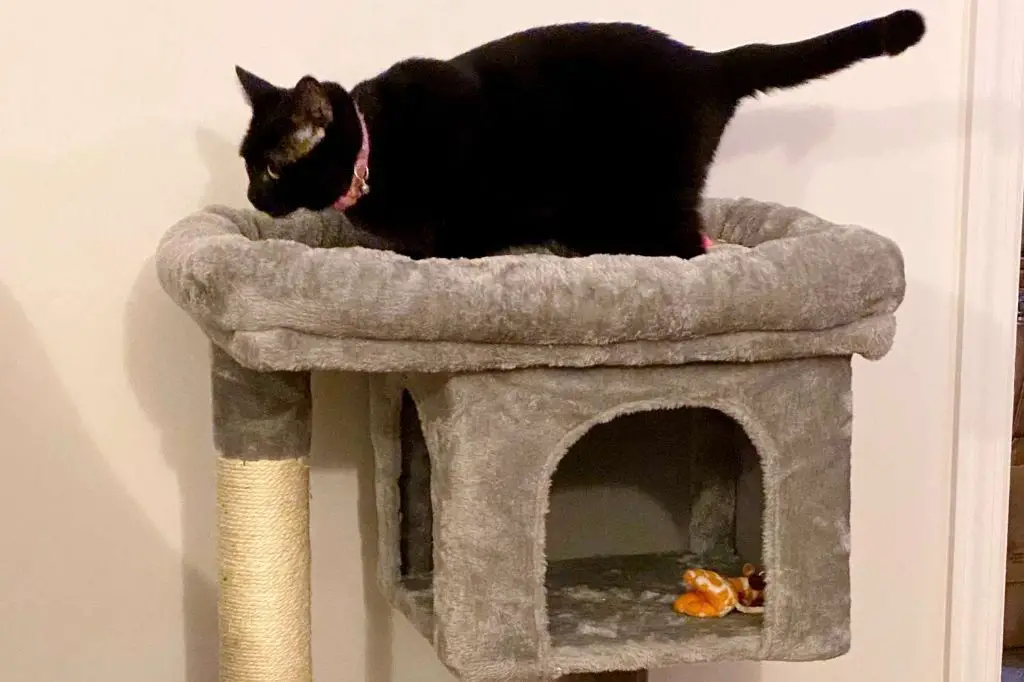Cats falling or jumping out of windows is an alarming yet common occurrence for cat owners. High-rise syndrome, as it’s called, results in injuries ranging from mild to severe or even fatal. While the height of the fall plays a major role, other factors like body position and surface landed on also determine impact. Still, cats have a remarkable ability to survive falls from great heights.
This guide will cover everything you need to know about cat window falls – from statistics and risk factors to preventing accidents and properly caring for an injured cat after a fall. We’ll provide tips cat owners need to avoid high-rise syndrome and explain what to do if the unthinkable happens.
Reasons Cats Jump
Curious behavior and the natural instinct to hunt are two main reasons why cats might jump from open windows. Here’s a summary of some of the most common scenarios:
Cats are naturally curious animals. They like to explore new places and investigate anything that catches their interest. Though indoor cats lack outdoor spaces to roam, open windows offer a tempting chance to observe the outside world. To satisfy their curiosity for what’s beyond the window, some cats may jump out to explore [1].

Chasing prey or insects is another instinctual draw. Cats have a strong prey drive wired into their DNA. Birds, squirrels, bugs or other potential prey that catches a cat’s eye through the window can trigger their chase response. Their intense focus on their target may lead them to pounce and leap through the window without considering the consequences.
Additionally, cats may jump out of windows when startled or afraid. Loud noises like thunder, fireworks or vacuums can spook some cats. In a panic, they may impulsively spring in the wrong direction to escape the perceived threat.
Risk Factors for Cats Jumping from Windows
There are several factors that can increase the risk of a cat jumping or falling out of a window, potentially leading to injuries from the fall. According to this article, the main risk factors include:
Open Windows – Leaving windows open increases the chances for a cat to jump or fall out, either intentionally or by accident. Screens may not be enough to keep a determined cat inside. Always supervise cats around open windows.
Insecure Screens – Window screens not properly installed or maintained can become loose or detached. Cats can accidentally fall against loose screens and tumble out if the screens are not securely attached.
High-Rise Buildings – Cats in high-rise apartments and condos are at risk for lethal falls from upper floors. Falls from 2 stories or higher are more likely to result in severe injuries or death compared to lower heights.
Taking precautions such as installing secure screens, supervising cats near windows, and avoiding leaving windows wide open can help reduce the chances of window falls and injuries.
Injuries from Falls

Cats that fall from heights can suffer a variety of injuries, ranging from mild to severe. Some of the most common injuries include:
Concussion
Cats that fall can hit their heads on the ground or other surfaces, leading to a concussion or head trauma. Concussions occur when the brain bounces around inside the skull, causing bruising, bleeding and swelling. Mild concussions may lead to temporary disorientation or vomiting, while severe concussions can cause seizures, difficulty breathing and even death (Source).
Broken Bones
Falls from heights frequently result in broken bones in cats. Common injuries include broken jaws, pelvises, legs and vertebrae. These fractures are extremely painful and require veterinary treatment. Severe fractures that are left untreated can lead to permanent disabilities (Source).
Internal Injuries
The impact from hitting the ground can cause serious internal injuries involving the organs, especially the lungs. Cats may suffer bruised lungs, punctured lungs, ruptured airways, liver damage and other trauma. Internal bleeding from injured organs can be life threatening. Rapid breathing, abdominal swelling and collapse are signs of critical internal injuries after a fall (Source).
Preventing Falls
There are several steps cat owners can take to prevent their cats from falling out of windows.
Installing secure screens or netting on all windows is one of the best preventative measures according to Preventing Your Cat From Falling Out the Window. Screens should be tightly fitted and sturdy enough that cats cannot push through them. You can also purchase special heavy-duty pet screening or cat netting designed for windows.
Restricting how far windows can open is another strategy. Devices are available that only allow windows to open a few inches, while still permitting air flow. This limits the opening size so cats can’t fit through 6 Ways To Keep Your Cat Safe From Falling Out Of Open Windows.
Paying attention to potential distractions inside near windows can also help. Loud noises from vacuums, TVs, radios, or other electronics can startle cats and cause them to panic and jump. Keeping windows securely closed when making loud noises reduces this risk.
What to Do if Your Cat Falls
If your cat falls from a window, the first thing you’ll want to do is get them to the emergency vet as soon as possible. According to the article How to Treat a Cat That has Fallen Off a High-Rise Building, you’ll want to carefully restrain and transport your cat to the vet, even if they seem uninjured. Cats are excellent at hiding pain and may have serious internal injuries that aren’t readily apparent.

At the vet, they’ll perform a full examination to check for injuries like punctured lungs, broken bones, concussions, and abdominal trauma. Treatment will depend on the injuries, but may include oxygen therapy, x-rays, pain medication, and surgery. You’ll want to monitor your cat closely over the next few days for any signs of worsening pain or new problems.
Once home, it’s important to restrict your cat’s activity to prevent further injury. Confine them to a small space like a bathroom or cage where they can rest and recover. Limit climbing, jumping, and running. Provide easy access to food, water, and litter. Check on your cat frequently and continue to monitor for any changes that may indicate an underlying problem. Your vet may want to see your cat for follow-up appointments to ensure they are healing properly.
With prompt veterinary treatment and proper care at home, many cats can fully recover after falling out a window. However, falls from tall heights can result in very serious, even fatal, injuries. So it’s critical to act quickly if your cat has an accident and get them the medical attention they need.
Long-Term Effects
Falls from high-rise windows can have lasting physical and behavioral effects on cats. Some of the potential long-term physical effects include:
- Chronic pain or arthritis from bone fractures or joint injuries that do not properly heal (webmd.com)
- Permanent lameness or disability if spinal injuries occurred (catster.com)
- Continued heart arrhythmias or abnormal heart rhythms (southbendtribune.com)
Behaviorally, cats that have fallen may develop a lasting fear of heights, windows, or being picked up. They may hide more often or seem anxious or distressed in situations that remind them of the traumatic fall (catster.com). Ongoing behavioral therapy and medication from a vet can help the cat recover psychologically.
Outlook and Recovery
The physical recovery timeline for a cat that has fallen from a high place can vary greatly depending on the severity of injuries. Minor soft tissue injuries may heal within a few weeks, while more serious injuries like pelvic fractures can take 6-8 weeks to heal (WebMD). Your veterinarian will be able to provide a more accurate timeline for recovery based on your cat’s specific injuries.
During the recovery period, it’s important to allow your cat to rest and limit activity as recommended by your vet. Provide easy access to food, water, and litter so your cat doesn’t have to exert themselves unnecessarily. You may need to assist with grooming if they have injuries that limit mobility. Whatever the injury, be patient during recovery as your cat may be frightened and stressed after the traumatic fall.
Cats that have fallen often become fearful of heights or windows afterwards. Keep windows securely closed or install screens/barriers to prevent future falls. Place food bowls, beds, litter boxes, and toys away from windows or balconies so your cat doesn’t feel tempted to jump up. Provide ramps or steps to high locations in your home so your cat doesn’t try to jump directly. With time, patience, and care, most cats make a full physical and behavioral recovery after falling from a high place.
When to Get Help
If your cat falls from a height, it’s important to watch for signs of serious injury or trauma that require immediate veterinary attention. Some signs to look out for include:
– Unconsciousness or inability to stand/walk after the fall – this could indicate head trauma, spinal injury, or internal injuries (Source)
– Labored breathing or respiratory distress – falling injuries may include broken ribs or pulmonary contusions (Source)
– Evidence of internal bleeding such as pale gums, bruising, or distended abdomen – this suggests serious organ damage or hemorrhage (Source)
– Inability to move or feel limbs, dragging legs – indicates potential fractures or spinal trauma (Source)
– Severe trembling, seizures, or head tilt – may be signs of head/neurological injury after the fall (Source)
In the days and weeks after the fall, also watch for any lasting changes like anxiety, abnormal gait, appetite changes, or house soiling which could indicate post-traumatic stress or hidden injuries. Seek vet advice if you notice anything out of the ordinary as complications can develop over time. With prompt care, many cats recover fully after fall injuries.
Conclusion

In summary, there are several reasons why cats may jump or fall out of windows, including chasing prey, exploring, and stress or anxiety. Falls can result in injuries ranging from minor sprains to traumatic brain injuries and death. Preventing falls requires addressing risk factors like open windows, balconies without railings, and window blind cords. If your cat does fall, get veterinary care right away, even if injuries seem minor. Provide a quiet space for recovery and watch for any concerning symptoms. While falls can be dangerous for cats, taking proper safety precautions, using deterrents, and addressing behavior issues can help keep your cat safe and content indoors.
As a final thought, do everything possible to protect your cat from window falls. Keep windows shut or install screens, choose a high-rise residence carefully, install deterrents on windows and rails, and address any behaviors like prey drive or anxiety that may lead to jumping. While cats may survive falls surprisingly well thanks to their physiology, a fall from a high window can still easily be fatal. Prevention is always better than cure when it comes to high-rise syndrome in cats.

